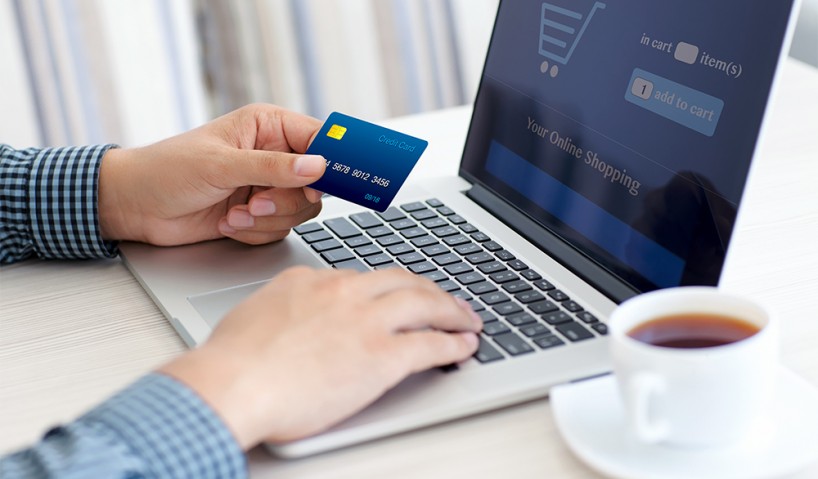How to Keep Your Payment Information Secure When Shopping Online

Shopping online has many advantages: you can compare offerings from multiple retailers in a matter of seconds, and you can make a purchase with a single click. While the convenience makes it an easy way to avoid the hustle and bustle of shopping in stores, it’s important to ensure you’re taking the steps to keep your payment information safe.
Shopping Online Risks
As with any online activity, you run the risk of having your information compromised. Hackers are experts at crafting traps to lure victims into supplying payment details. How do they achieve this?
It comes in a variety of forms. Perhaps, you’re using a public WiFi when in a hotel or coffee shop and you order an item from Amazon. It might seem harmless but the problem is public WiFi isn’t as secure as what you might have at home, so it gives virtually anyone the ability to snoop on your online activities.
Another clever disguise is hackers predicting your behaviors. They do this by crafting phishing emails with messaging that says there might be something wrong with your order. Often, they try to disguise themselves as FedEx, the USPS or even Amazon. They’ll even provide a reference number and a link to resolve the issue.
The only problem is once you click on the link, it could take you to a malicious site that looks like FedEx, but in reality, it’s a landing page designed by thieves. And once you supply your personal information the hackers have what they need.
Tips to Keep You Safe When Shopping Online
To mitigate the risk of having your information stolen or your device compromised from malware, it’s important to do the following:
- Use a secure connection when shopping online. At home, use a WPA-2 router, as this encrypts data making it less likely hackers can snoop on you.
- Speaking of routers, keeping the software up to date is imperative in keeping your data safe. If you rent your router from your ISP, contact them to see if there are any updates. If you own your router, check with the manufacturer for updates.
- Meanwhile, when you’re out and cannot connect to your home’s WiFi, have a VPN set up on your device. This insulates it from hackers by providing another layer of protection.
- When shopping on a retailer’s website, make sure their web address has https, as this indicates a secure connection.
- If you receive an email saying there’s a problem with your order, contact the retailer or shipper directly to verify. Keep in mind retailers won’t ask for your personal information such as a debit card or bank account since they have it on file.
- From a device standpoint, comply with all software updates and install antivirus and antimalware software. These provide layers of protection against prying eyes.
All told, hackers deploy tricky methods to entice you to fork over data. And if you become a victim of malware, our team at Outsource Data Recovery can help. We have the tools and expertise to recover your files in an expedient and secure manner. Contact us today to learn more about our services.
